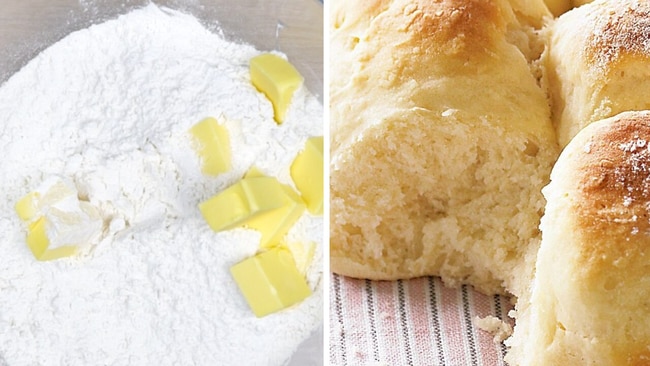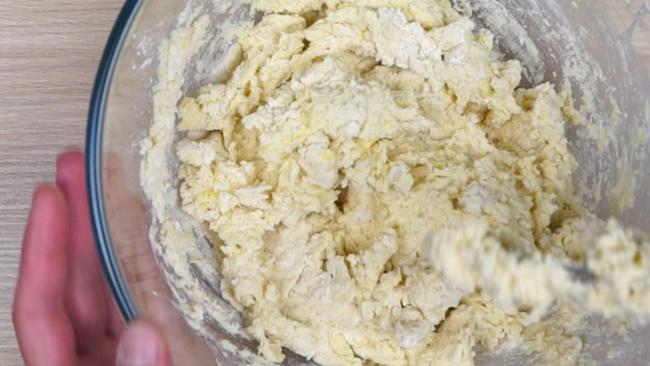why are my scones dry and tough
Who else has fallen victim to a rock hard scone?

Even if you have every tried-and-tested 5-star scone recipe under your belt, they can still turn out dry and tough, due to one simple mistake. Basic scones, lemonade scones, buttermilk scones, I could never seem to produce a light and fluffy scone… until now.
Game-changing tip for light and fluffy scones: ‘Gently does it’
Alison tells me the scone motto to live by is ‘gently does it’. One key error that causes scones to be dry and tough is being too heavy-handed with the dough. She says: “Making scones requires a VERY light touch. Only use the tips of your fingers to rub in the butter into the flour, lightly lifting and dropping the mixture.”
For super fluffy scones, make sure to not over-mix and resist the urge to knead the dough too much. “Ditch the spoon and use a flat-bladed knife when mixing the ingredients together,” Alison adds. “When patting the dough into a disc, do it quickly and lightly and avoid overworking the dough.”

Cold butter IS useful (for once)
Alison also uses very cold butter, grated instead of chopped when rubbing the butter into the flour, to speed this process up. Cold butter also helps to achieve high-rise, fluffy scones, as once the chilled butter enters the oven, it melts and releases steam, which leads to that magical texture.
When are my scones ready?
You’ll know the scones are done if they sound hollow when tapped – avoid overcooking as that will also make them too dry! Alison also advises to take them out of the oven and cover with a tea towel to help them steam as they cool slightly.

Originally published as why are my scones dry and tough


